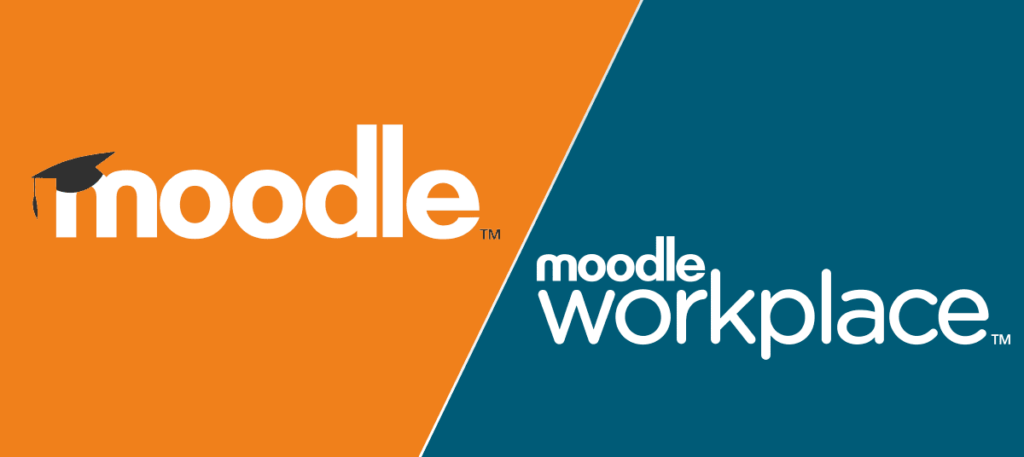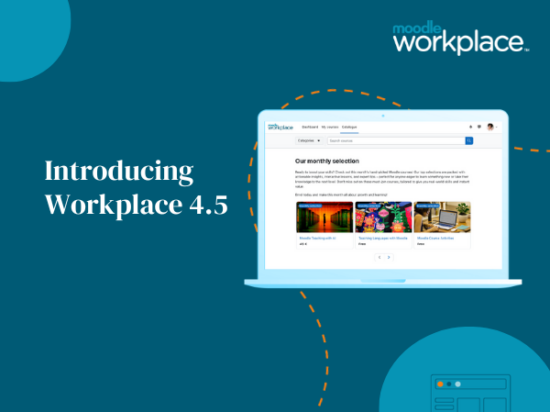Moodle and Moodle Workplace are both BCorp Certified learning management systems. While they share a common foundation, Moodle Workplace is the enterprise version tailored to meet the unique needs of corporate environments. Here are 10 key differences between Moodle LMS vs Moodle Workplace:

- Focus and Purpose
- Moodle LMS: Primarily designed for small organisations and traditional educational settings.
- Moodle Workplace: Geared towards corporate training and professional development, emphasising skill-building and compliance.
- User Management
- Moodle LMS: User management is centered around students, teachers, and administrators.
- Moodle Workplace: Places a stronger emphasis on employee roles, departments, and organisational hierarchies.
- Competency Framework
- Moodle LMS: Has a basic competency framework for academic purposes.
- Moodle Workplace: Offers an advanced competency-based framework to align employee skills with organisational goals.
- Learning Plans
- Moodle LMS: Primarily utilises course structures for learning paths.
- Moodle Workplace: Incorporates personalised learning plans to cater to individual career development.
- Certifications
- Moodle LMS: Supports certifications.
- Moodle Workplace: Emphasises industry-specific certifications and compliance training.
- Performance Management
- Moodle LMS: Limited tools for employee performance tracking.
- Moodle Workplace: Integrates performance management features, including goal setting and appraisal tools.
- Content Access and Delivery
- Moodle LMS: Focuses on course-based content delivery.
- Moodle Workplace: Enables content delivery through learning paths, job roles, and competencies.
- Integration with HR Systems
- Moodle LMS: Limited integration with HR systems.
- Moodle Workplace: Offers seamless integration with HR platforms for unified workforce management.
- Reporting and Analytics
- Moodle LMS: Standard analytics and reporting for completion and certification progress.
- Moodle Workplace: Advanced analytics for tracking learning pathways, onboarding, certification and compliance metrics.
- Customisation and Branding
- Moodle LMS: Branding to reflect organisation brand. Highly customisable with over 2000 plugins.
- Moodle Workplace: Provides extensive branding options to align with corporate identity. Highly customisable with over 2000 plugins.
Ultimately, the choice between Moodle LMS and Moodle Workplace hinges on the unique needs and objectives of the organisation. Whether in the pursuit of academic excellence or the enhancement of workforce capabilities, both platforms remain stalwarts in the realm of online learning, offering versatility and adaptability to meet the evolving demands of education and professional development.







